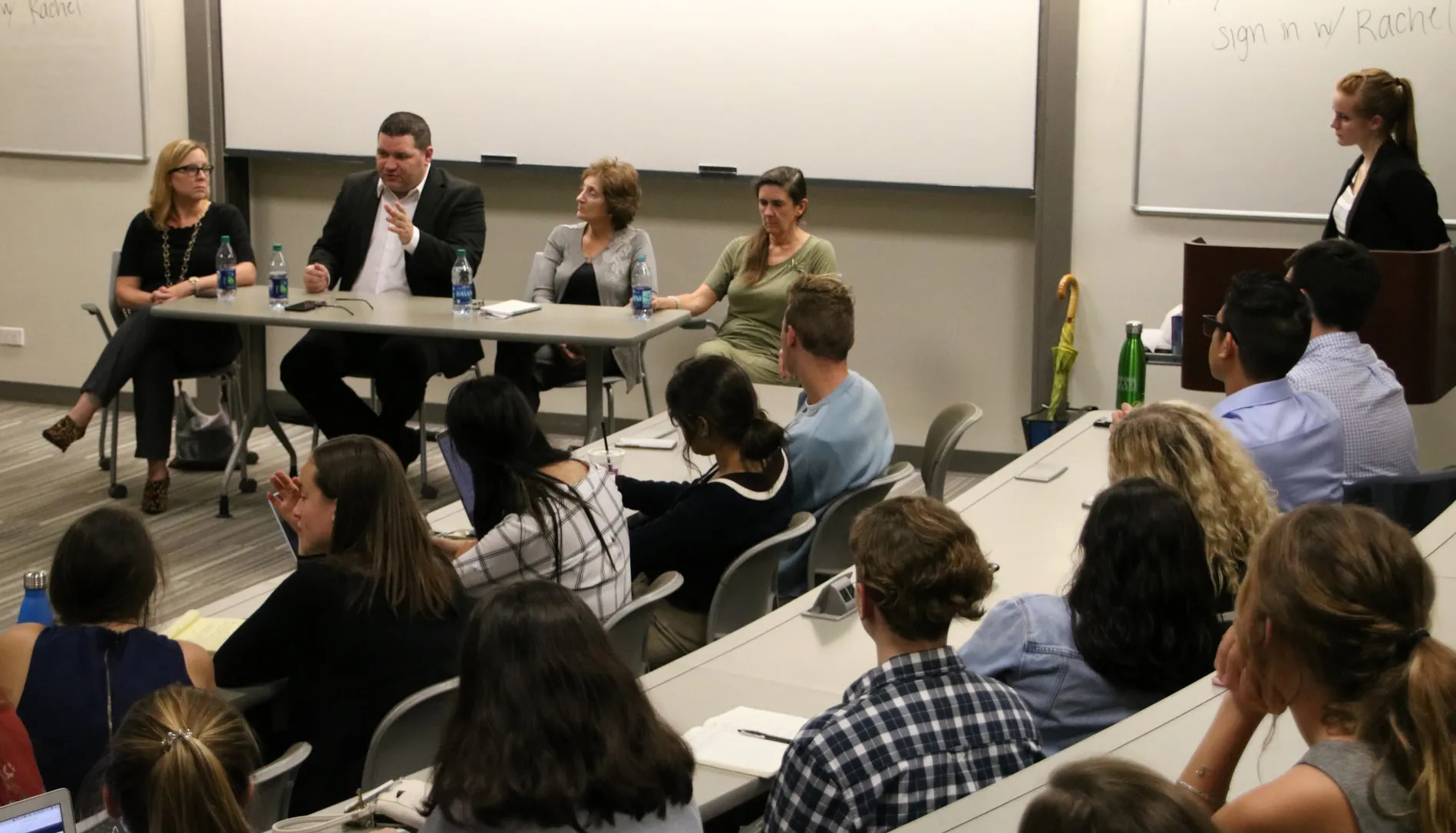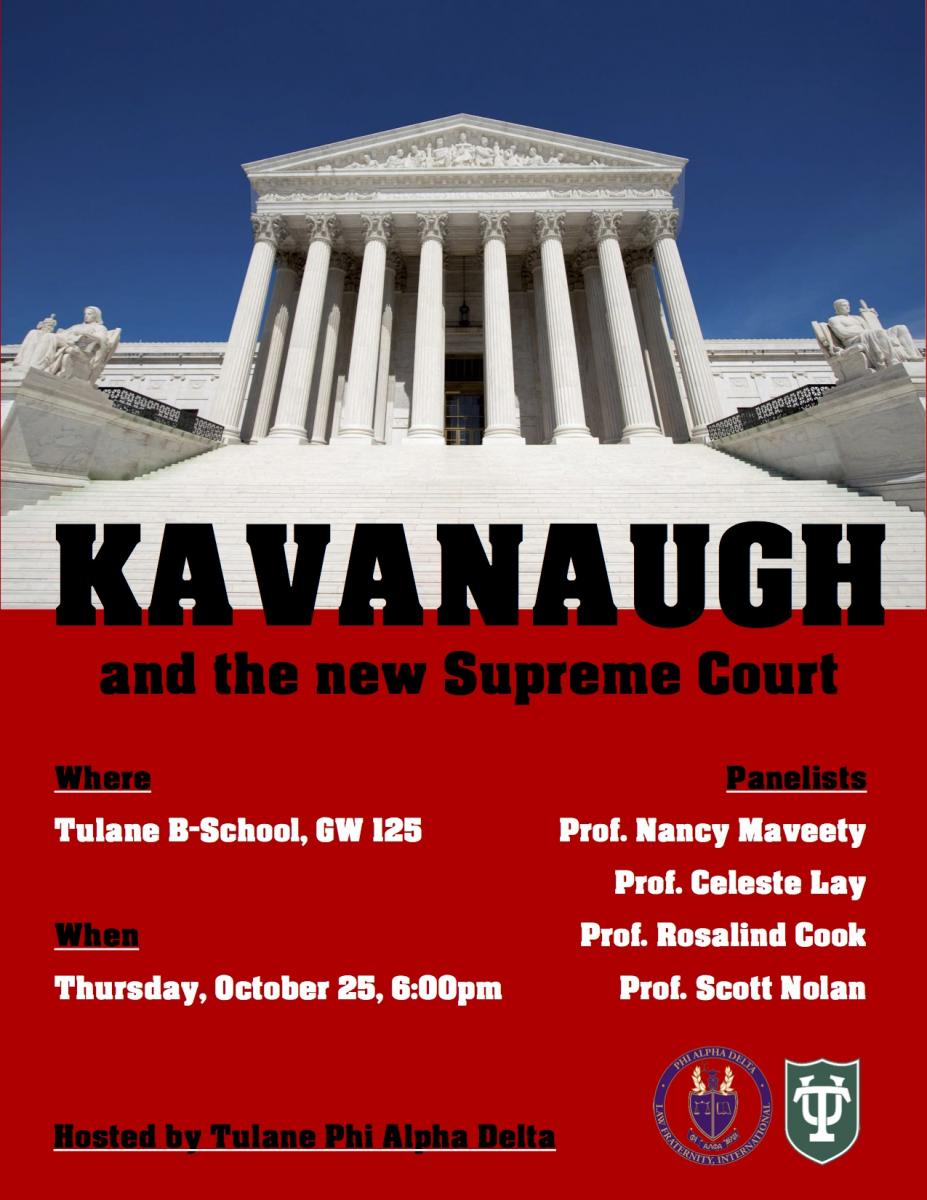
“Have we been relying on the Supreme Court and the justices for too many things? Allowing the Court’s power over policy, over questions that are values questions about our society and what we believe? Have we been delegating too many of those things to people who are unelected?” Nancy Maveety, professor and department chair in the Department of Political Science, posed these questions to a room full of students on October 25.
With the midterm elections approaching and in light of the recent appointment of Justice Brett Kavanaugh, the Phi Alpha Delta Pre-Law Chapter (PAD) held a panel on the politics of the Supreme Court. “Kavanaugh and the New Supreme Court” included four members of the Department of Political Science—Maveety, J. Celeste Lay, Scott Nolan, and visiting faculty Rosalind Cook—and addressed themes and issues such as shifts in ideologies of the Supreme Court and the power of voting.
After answering guiding questions from PAD President Bronte Foley (SLA '20), the panelists then took questions from a standing-room-only crowd of students. Maveety, who specializes in the U.S. Supreme Court, began by emphasizing that while the ideology of the Court tends to shift as the regime shifts, the largest differences she sees now are the role of external groups shaping judicial nominations, and “polarization coincident with party identity that has never perfectly existed on the U.S. Supreme Court,” which previously allowed individuals to understand the Court as a non-partisan body.
Moving to a deeper discussion on the Supreme Court today and the stakes of new appointments, Nolan emphasized the important role of the “median justice,” or the justice that moves between defined political parties on his or her vote. “You know that on economic issues the court is going to keep doing what it has been doing, which is being pretty right of center and pretty pro-business; but on social issues, a small change in degree—one justice—is enough to really flip these social issues from left to right,” explained Nolan.
Students raised questions on the role of amicus briefs in swaying opinions of the Court, the future of the Electoral College, and the new appointment of Justice Kavanaugh. While offering insight and historical examples, the panelists also returned questions to students for consideration from a broader perspective, such as what does it mean for the Supreme Court to be an independent institution? How does the president’s party affiliation influence the Court’s decisions? Should the Court be doing as much as it has been doing, in terms of shaping outcomes of our values and society?
As Cook drew parallels to the aftermath of Anita Hill’s public testimony against Justice Clarence Thomas and the rise in women voters and candidates that followed, Nolan offered direct action items to create change: “Register to vote. Volunteer with campaigns. Talk to people who would otherwise not want to register or not want to vote in the midterm election. Find someone who is apathetic and give them a reason to care.” “We’re just going to have to change hearts and minds one at a time.”


